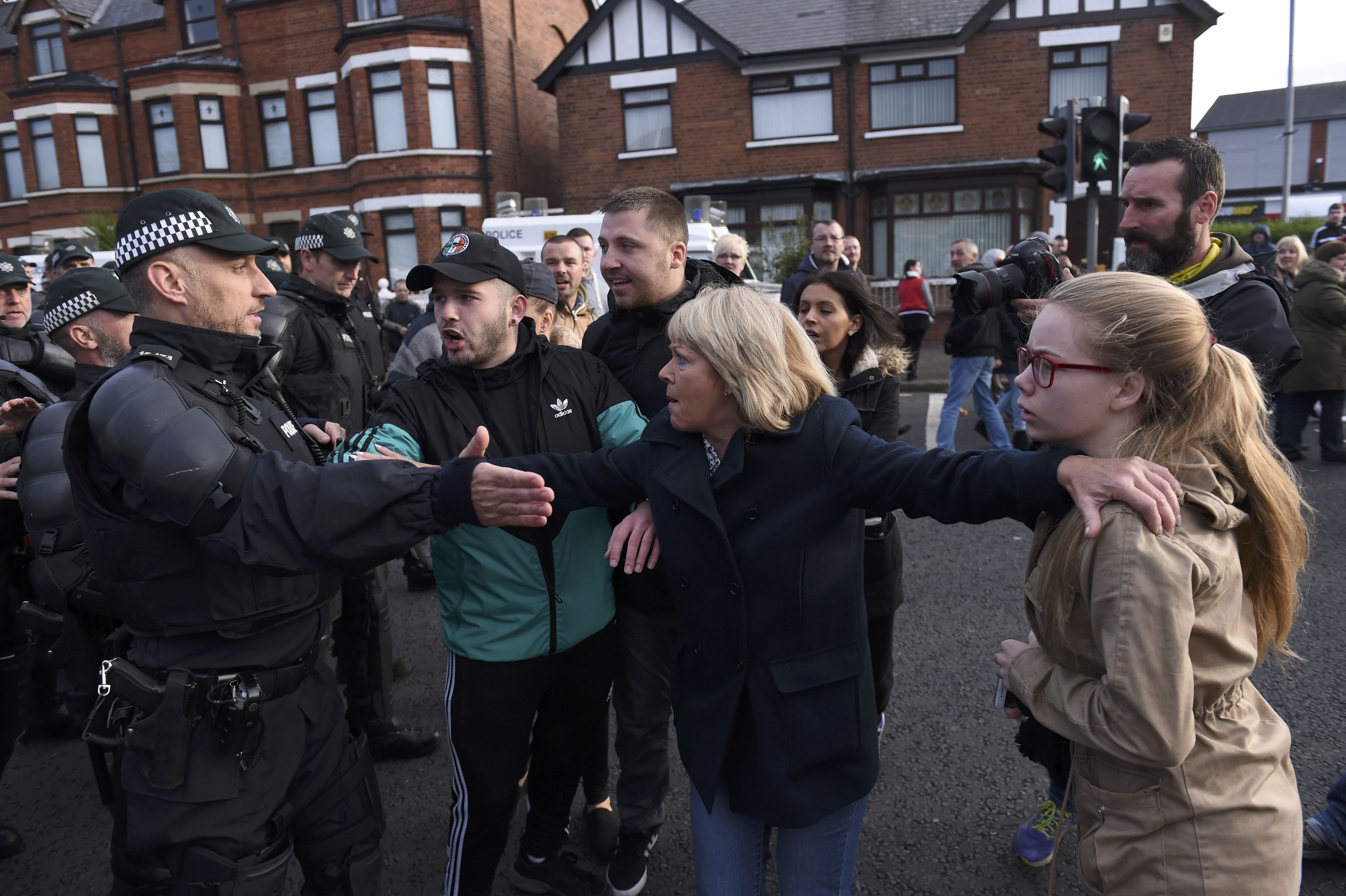
BELFAST: Pro-British protestants ended a three-year protest in Belfast on Saturday after authorities allowed them to complete a march marking a 17th century military victory, passing a neighbourhood dominated by rival Catholics.
Protesters began their vigil in July 2013 at the point where police halted the parade marking King William of Orange's victory over the Roman Catholic King James at the Battle of the Boyne in 1690, which helped secure Protestant supremacy in Ireland.
Parades are staged annually by Protestant unionists, who want Northern Ireland to remain part of the United Kingdom.
The tradition is seen as provocative by Catholic Irish nationalists who want to be part of a united Ireland.
The Parades Commission, a body set up to resolve Northern Ireland's annual "marching season" tensions, brokered a compromise between the rival sides under which local residents agreed to end their protests during the outbound leg of the of the march from the city centre to a parade ground.
In exchange, the marchers agreed a moratorium on the return leg back past the Catholic area, which routinely sparked rioting in the evening of every July 12.
Irish nationalist party Sinn Fein described the agreement as heralding a "new era of peace building" in North Belfast.
Early on Saturday morning, two Orange Order bands and more than a hundred marchers passed the Catholic estate, with some 60 protesters looking on at derogatory signs reading.
A caravan that had been used to house the protesters at the vigil was towed away.
Over 600 police, many in riot gear, were on duty for Saturday's march.
The cost of policing the protests since 2013 has been in excess of 21 million pounds ($27 million), police said.
A 1998 peace agreement paved the way for a power-sharing government of unionists and nationalists, meant to end decades of sectarian and political killings in Northern Ireland.
Violence has subsided, but police say the threat from dissident groups opposed to the peace deal remains high.